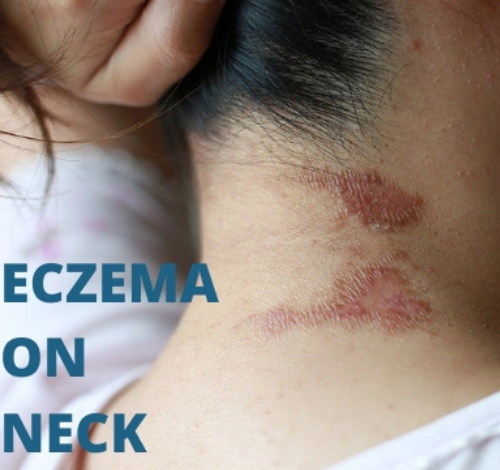

Eczema is a common skin disease that affects millions of people around the world. Most people may be most worried about how common it is and how it spreads. This paper will talk about Eczema in general terms, with a focus on important points that are important to most people. Itchy, red, and swollen skin that doesn’t go away is a sign of atopic dermatitis, which is another name for Eczema. It might get worse as people age, even if it generally starts when they are young. Because their skin is getting older and they may have other health problems, people may react to Eczema differently.
Understanding Eczema
1. About Eczema?
Atopic dermatitis, which is alternatively named Eczema, is a chronic skin disorder that results in the skin appearing red, swollen, and itchy. There exists a possibility that this condition will occur anywhere on the body, with its intensity ranging between moderate to severe. The common manifestations of this condition include:
- Dryness and sensitive skin.
- Severe burning sensation.
- The presence of red or brownish-grey patches.
- Little elevations filled with fluids.
Some possible causes of Eczema include genetic predisposition, allergy, allergen exposure, and environmental factors, among others. It has no definitive cure. However, some prefer to use cream.
2. Symptoms of Eczema
Eczema, also known as atopic dermatitis, can cause various symptoms that may vary in intensity from person to person. Common symptoms include:
- Dry skin: Often, the first sign is that skin may appear rough, scaly, or cracked.
- Itching (pruritus): Intense itching, especially at night, which can be severe and disturb sleep.
- Red or inflamed skin: Skin affected by Atopic dermatitis may appear red or inflamed, especially during flare-ups.
- Thickened skin: Over time, repeated scratching or rubbing can lead to thickened, leathery skin.
- Blisters or oozing: In some cases, Atopic dermatitis can cause small, fluid-filled blisters that may ooze and crust over.
- Sensitive skin: Affected skin may be sensitive to certain products or environmental factors, causing irritation.
- Darkened skin patches: Areas of skin affected by Atopic dermatitis may become darker over time.
- Pain or discomfort: Severe itching and irritation can lead to pain or discomfort, affecting daily activities.
Is Eczema Contagious?
Elders often wonder if Eczema is contagious from person to person. It’s essential to clarify this misconception:
- Eczema itself is not contagious.
- However, certain infections associated with Atopic dermatitis (like bacterial infections) can be contagious.
Factors Contributing to Atopic dermatitis Spread
-
Skin Irritants and Allergens
- Common triggers that can exacerbate Atopic dermatitis.
- How elders can identify and avoid these triggers.
-
Bacterial Infections
- Good skin care is important to prevent infections.
- When to seek medical help if an infection develops.
Managing Atopic dermatitis in Elders
-
Skin Care Tips
- Gentle skincare routines are suitable for aging skin.
- Recommended moisturizing creams and cleansers.
-
Treatment Options
- Medications and therapies are commonly used to manage Atopic dermatitis.
- Potential side effects and considerations for elders.
Lifestyle and Coping Strategies
-
Emotional Impact
- How can atopic dermatitis affect mental health and quality of life?
- Coping mechanisms and support resources.
-
Preventive Measures
- Tips for preventing flare-ups and managing stress.
- Importance of maintaining overall health and wellness.
Conclusion
In conclusion, Eczema is a skin condition that is not contagious and seriously impairs senior citizens’ quality of life. By proactively identifying the causes, symptoms, and management strategies, elders can lessen its effects. Remember that with proper cleanliness and skin care, Atopic dermatitis can be prevented even though it is not contagious. Managing their health via knowledge and education can help elderly individuals take better care of their skin.









